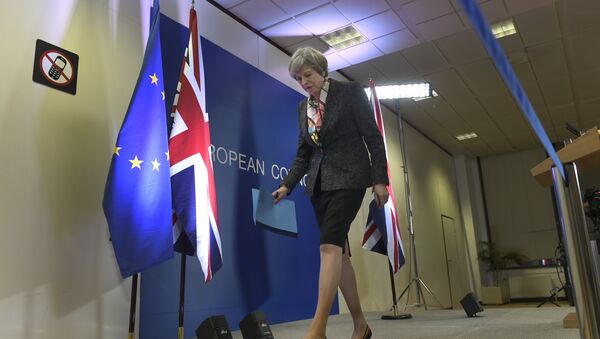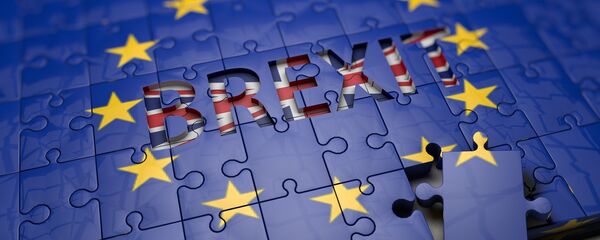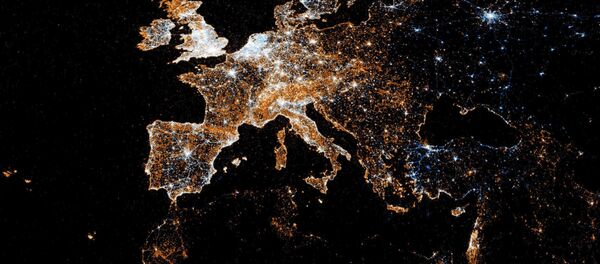Thursday and Friday's summit may have been the last to be attended by UK Prime Minister Theresa May as the head of an EU member state. May is expected to trigger Article 50 of the Lisbon Treaty by the end of this month, resulting in the start of a two-year process of talks that will ultimately see the country leave the EU. The UK voted to leave the EU in a referendum held last June.
Speaking to UK media on Friday, Irish Prime Minister Edna Kenny said that EU leaders would meet next month if London triggers Article 50. At a press conference, German Chancellor Angela Merkel was more specific, saying that if the UK triggers exit procedures in the near future, the summit will be held April 6.
Sergei Manukov, political observer and contributor to the Russian business magazine Expert Online, believes there is no doubt that these talks will be difficult. The European Commission's chief negotiator, Michel Barnier, started assembling a team of 30 staffers late last year. However, while the bloc will act a unified entity in negotiations, it's obvious that not all the members of the EU want the same thing from London.
In a recent article for the news and analysis site Expert.ru, Manukov broke down the expected reaction from a number of different countries. The expert noted, firstly, that there are a couple common factors which all 27 EU member states want from the UK. This includes some formal protections for the rights of EU member citizens living and working in the country. Secondly, of course, the EU states want to protect their economic interests in the UK.
At the same time, however, the observer stressed that "all European countries," or at least their governing elites, "are united in the desire for the UK to be worse, not better off, following exit from the EU…" This of course is meant to punish any other countries plotting to leave the supranational union.
And while there are no precise calculations on the size of the 'bill' that Brussels intends to present to the UK for its insolence, rumor has it that London will be asked to pay the equivalent of about 60 billion euros for its decision to 'abandon' Europe. "On this issue, of course, a particularly acute struggle will start during the negotiations," Manukov stressed.
Moving on to consider the expected positions and behavior of individual countries, the analyst began with the EU's largest members: Germany, France and Italy.
In Germany's case, Berlin's position is clear, Manukov noted. "After Theresa May stated plainly that the UK does not intend to remain a full member of the single European market, Berlin toughened its position on Brexit and made it clear to London that it will face severe requirements."
"Berlin wants to ensure that after negotiations between the European and UK delegations, there are no separate negotiations or agreements with automakers, bankers, or the representatives of other sectors. Angela Merkel has repeatedly appealed to German businesses to request that they show the same firmness toward London as the government does."
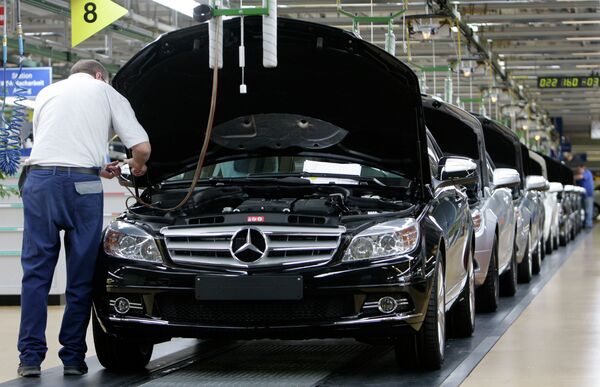
Paris, Manukov suggested, "is perhaps even more determined than Berlin. President Francois Hollande, finishing out the last months of his presidency, is warning the British that they should not expect any preferences or concessions. Emmanuel Macron, thought to be the most likely to win the upcoming presidential election, agrees with him on this issue." At the same time, Paris is looking to protect its citizens living across the Channel, and the interests of its fishermen, hence "insisting on a tough stance on the issue of fishing quotas."
Madrid, the analyst noted, faces the added factor of the hundreds of thousands of UK nationals who either temporarily or permanently reside in Spain. About 300,000 Brits live in Spain on a permanent basis, with at least another 500,000 residing there for a few months out of each year. Accordingly, "for Madrid, negotiations on trade, tourism and capital flows between the two countries are also important, given that Spain is doing everything it can to try to reduce its budget deficit."
"Another distinctive factor of the Brexit for Spain is related to the country's territorial claims against the UK. The issue at stake is Gibralter, which has belonged to the British Crown for a little more than three centuries, and during all this time has overshadowed relations between the two countries."
Finally, Manukov noted, "Madrid is also concerned about territorial integrity – both its own and that of the UK. Any concessions that the European delegation makes to Scotland in the course of negotiations can be used by Catalan separatists to advance the question of Catalonia's independence." This of course is a disquieting prospect for Madrid.

"In addition, Warsaw is also concerned about security and defense issues, as well as the fate of Brussels' special subsidies for development." The UK contributed about 8.5 billion pounds a year to the EU's structural assistance funds before Brexit, making it one of the top five contributors to these funds. After Brexit, Poland is insisting that EU assistance does not face significant cuts. Poland also hopes to maintain strong trade ties with the UK. In defense, Warsaw is hoping that Brexit will not impact London's commitments to NATO, particularly given the alliance's recent buildup in Eastern Europe.
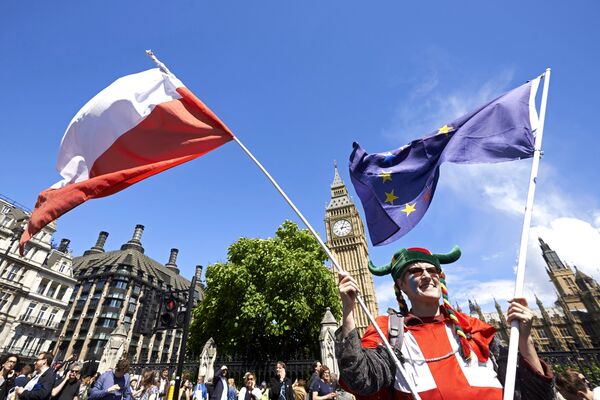
Finally, there is Ireland. Given its combination of geographical proximity to the UK, and the strong historical and other ties associated with its former metropole, Manukov noted that Ireland is "among the EU countries seeking to preserve as much as possible a close relationship with Britain."

"First and foremost," the journalist stressed noted, "this means maintaining a transparent border, allowing for the continued free movement of citizens of the two countries. Here, it's important to remember Northern Ireland, which remains British territory, is also on the island. Dublin also wants London to have the widest possible access to the single European market. [Therefore,] its demands toward the UK are arguably lower than those of other members of the EU."
As the often-times unwieldy 27-member bloc begins negotiations with London, the central question seems to revolve around whether its most powerful states – Germany and France, will be able to override the goals and aspirations of smaller members seeking to maintain sound economic, political, and security relations with the UK.

